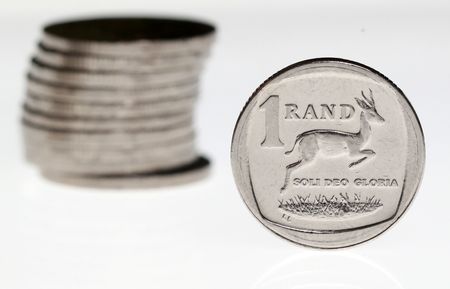By Stephen Culp
NEW YORK (Reuters) -U.S. stocks fell on Wednesday, and oil prices logged their biggest monthly drop in 3-1/2 years following news of a U.S. economic contraction and other disappointing data, and mixed earnings reports.
The dollar strengthened, and crude oil prices headed lower.
All three major U.S. stock indexes were deep in negative territory, with the tech-laden Nasdaq down the most.
On the last day of April, all three U.S. stock indexes were on course for their third straight monthly losses.
“The market’s action … is reflective of an economy that’s probably going to be struggling as the year progresses,” said Chuck Carlson, CEO of Horizon Investment Services in Hammond, Indiana.
U.S. gross domestic product contracted in the first quarter, largely due to a surge in imports to avoid expected tariffs. U.S. President Donald Trump blamed his Democratic predecessor, Joe Biden, and said his tariffs would eventually bring a booming economy.
“There’s a general feeling that tariffs are impacting the economy or they’re certainly impacting decision-making,” Carlson added. “But stocks are off their lows and that may be a result of people digesting some of these numbers and trying to put them into context.”
“Was it that bad? Are we on the precipice of a recession? Markets are trying to evaluate that and put into some context,” Carlson said.
The ongoing, multi-front trade war continues to cloud U.S. corporate earnings season, with companies increasingly pulling or reducing guidance due to tariff uncertainties.
Wall Street pared losses after the release of more upbeat economic indicators. The Personal Consumption Expenditures (PCE) price index was unchanged on a monthly basis and consumer spending was stronger than expected.
Of the “Magnificent Seven” group of artificial intelligence-related megacap companies, Meta Platforms and Microsoft are expected to post results after the bell.
The Dow Jones Industrial Average fell 205.15 points, or 0.51%, to 40,321.75, the S&P 500 dropped 41.42 points, or 0.74%, to 5,519.41 and the Nasdaq Composite slipped 172.88 points, or 0.99%, to 17,288.44.
European stocks ended a choppy session higher as investors mulled key data and corporate earnings. But the STOXX 600 registered a second consecutive monthly loss due to tariff-related uncertainties.
MSCI’s gauge of stocks across the globe fell 3.09 points, or 0.37%, to 828.22.
The pan-European STOXX 600 index rose 0.46%, while Europe’s broad FTSEurofirst 300 index rose 9.45 points, or 0.45%.
Emerging market stocks rose 5.38 points, or 0.49%, to 1,111.37. MSCI’s broadest index of Asia-Pacific shares outside Japan closed higher by 0.86%, to 580.55, while Japan’s Nikkei rose 205.39 points, or 0.57%, to 36,045.38.
The dollar held its gains after a swath of mixed U.S. economic data and as trade tensions eased.
The dollar index, which measures the greenback against a basket of currencies including the yen and the euro, rose 0.3% to 99.47, with the euro down 0.31% at $1.135.
Against the Japanese yen, the dollar strengthened 0.34% to 142.85.
Sterling weakened 0.53% to $1.3335.
The Mexican peso dropped 0.3% versus the dollar to 19.607.
The Canadian dollar strengthened 0.32% versus the greenback to C$1.38 per dollar.
The U.S. 10-year Treasury note yield seesawed higher after the weaker-than-expected GDP report, rising 1.1 basis points to 4.185% from 4.174% late on Tuesday.
The 30-year bond yield rose 3.8 basis points to 4.6852% from 4.648% late on Tuesday.
The 2-year note yield, which typically moves in step with interest rate expectations for the Federal Reserve, fell 3.3 basis points to 3.625%, from 3.658% late on Tuesday.
Oil prices plunged further, logging their largest monthly drop in nearly 3-1/2 years as Trump’s trade war eroded the demand outlook.
U.S. crude fell 3.66% to settle at $58.21 per barrel, while Brent settled at $63.12 per barrel, down 1.76% on the day.
Gold prices dipped in opposition to the dollar.
Spot gold fell 0.4% to $3,302.32 an ounce. U.S. gold futures fell 0.59% to $3,299.30 an ounce.
(Reporting by Stephen Culp; Additional reporting by Alun John; additional reporting by Rae Wee in Singapore; Editing by David Gregorio and Richard Chang)











